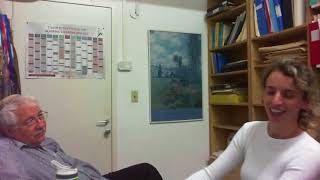Background (085-028-01-0)
The patient is a former aspiring history lecturer, and a travel guide who because of difficult economic circumstances took a position as an overseas salesman of irrigation equipment, exclusively to accounts in third world countries. The company is owned by his brother-in-law.
Although he had one period of bowel dysfunction associated with stress while a university student he had been symptom free in the subsequent 18 years. However, in the last 3 years, since travelling frequently abroad he has started having intermittent pain and diarrhea- usually while away from home.
He hates his job, hates travelling and finds great difficulty in the task of meeting with foreign clients- usually at long, ceremonial and boring meals at restaurants. In his mind it is the level of hygiene in these foreign countries that is causing his bowel disorder. And so he plans this visit to the doctor to get some preventive medicine and something effective to take should the symptoms recur.
The action
In this video the doctor collects the relevant information in an attempt to find some clear way of deciding if the bowel dysfunction is functional or organic. He has a reserved and thoughtful manner, shows the patient respect but doesn’t engage him in discussing his obvious emotional turmoil he has over his job.
Similarly, the doctor doesn’t share his own thoughts freely with the patient- avoiding for example explaining by what mechanism functional complaints can arise- but on the practical level wins his agreement to his plan.
Educational opportunities
When viewed as a whole this video is a wonderful example of solid clinical thinking and its limitations. The psychosocial contribution to the patient’s complaints is likely important, whether the diagnosis is irritable bowel syndrome or colitis. Interesting points for discussion are:
- Should stress related bowel disorders be diagnosed by exclusion only after completing a “full g.i. work-up”?
- What might be lost or gained by responding empathically to the patient’s cues or by exploring further his psychosocial reality along the lines of CASE
- How would a more “democratic” approach be reflected in the “handing-over” section of the interview
Editor’s note: This interview has the feeling of a benign interrogation rather than a therapeutic dialogue. Had the doctor been more patient-oriented and responsive and more transparent about his clinical reasoning he might have been able to advance further in his diagnosis and treatment.


